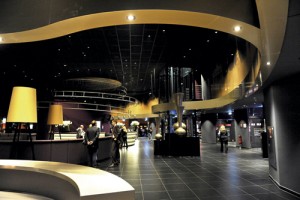The relationship between Germany’s casinos and arcades has further soured, David Snook writes


Germany’s land-based casinos are being blamed – at least in part – for controversial new proposals that will hit the street market.
Turnover in German casinos has fallen 44 per cent in the past two years, €960m to €580m, while the street market has steadily grown, led by the up-market arcades.
There has always been an antagonistic relationship between the casinos and low payout machine market, largely based upon the conviction by casinos that AWP machines divert business away. As the casinos are often owned or part owned by the German states, local politicians are influenced to legislate against the arcades, it is believed.
Now the 16 states that make up Germany are adopting fresh regulations on street market locations, an area which they can influence. They cannot dictate any regulations about the machines themselves – that is covered by federal law – but they can affect the way in which machines are operated.
Three states, Berlin, Bremen and Schleswig-Holstein, have already adopted largely similar local laws and the remaining states are likely to follow suit.
In five years’ time, the country’s 8,000 arcades – which often call themselves ‘casino’ – will have to drop the name. They will also be prevented from employing a system of multiple-licensing. Arcades are permitted 12 AWP machines per licence, but operators often group several licences together, as many as 10 or 12, to provide a higher number of machines. They split the location into separate rooms connected to a central reception area.
This would be banned under the new proposals and a minimum distance – as much as 500m – would have to separate one arcade from another.
This feature can be read in full in our January 2012 issue of InterGaming magazine.

